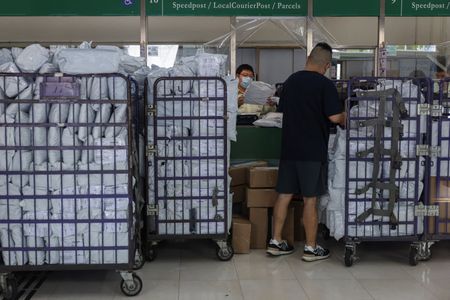By Mariko Katsumura
TOKYO (Reuters) -Japan needs to conduct a fundamental review of its policy for foreign residents and should debate whether a cap should be introduced, according to a government report released on Friday.
Concerns over an influx of foreigners, both temporary and permanent, have become a hot topic in Japan, where growth in support for an anti-immigration party in July’s upper house election contributed to the ruling coalition’s loss of its majority.
The world’s no. 4 economy this week also announced a plan to introduce tougher requirements for visas for foreign entrepreneurs. And in the lead-up to the election, the government set up a cross-agency body to respond to issues such as crime and overtourism involving foreigners.
Justice Minister Keisuke Suzuki, who oversees the immigration agency, said in Friday’s report that Japan lacked unified policies concerning foreigners.
“Additionally, there has been no discussion on the impact on society, potential friction, quantitative management of foreign residents, or the framework for optimising systems related to foreign residents,” the report said.
Currently, the government has set a cap for foreigners with a skilled worker visa at 820,000 for the five years that began in April 2024. It is also introducing a technical intern visa, which is expected to start in 2027, and those numbers will be capped.
But the government should also look at temporary caps on foreigners with other residence statuses when extreme increases in the number of foreigners indicate that social friction is “exceeding tolerable levels”, the report said.
Japan has long sought to maintain a homogeneous population through strict immigration laws, but has gradually eased them to supplement its shrinking and ageing labour force.
The number of foreign nationals in Japan climbed to 3.8 million last year, a 10.5% increase from a year ago. They account for about 3% of the country’s total population.
(Reporting by Mariko Katsumura; Editing by Edwina Gibbs)











